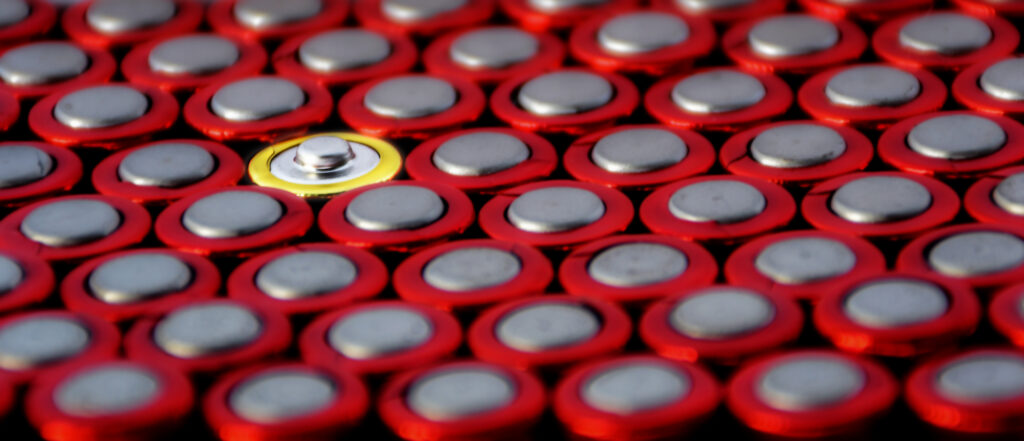BATTERY TECHNOLOGY
The modern world could not and would not operate without batteries: our cell phones, many appliances, and increasingly our electric vehicles, just to name a few all require small, light, and long-lasting batteries. Just as importantly, as solar and wind energy come to dominate our energy sources, batteries will be more and more necessary to store these “intermittent” energies so they can be used when the sun is not shining and the wind is not blowing.
One of the more exciting advances in battery technology is the solid state lithium battery, which charges much faster and holds much larger charges than standard lithium batteries. For example, solid-state battery electric vehicle (EV) cars will have range of 600 to 700 miles (1,000 km), charge in 10 to 15 minutes, and all but eliminate risk of catching on fire as some traditional lithium batteries have done.

Five Battery Breakthroughs in 2023 (Source: Tech Life)
1. Liquid Metal Battery Chemistry
- Uses low cost materials (liquid calcium alloy)
- Longtime storage
- Requires few components
- Electrolite
2. Sodium Ion Battery
- Benefits:
-
- Sodium is plentiful and cheap: 30% less expensive than Lithium Iron Phosphate (LFP)
-
- Low environmental impact
-
- Doesn’t catch fire
-
- Charging time 15 min and 150 mile range
-
- Drawbacks:
-
- Not as good operating performance as LFP
-
3. LFP (Lithium Iron Phosphate) Battery
- No cobalt or nickel and so more ecological friendly and fire resistant
- Quick charge and low discharge
- Not harmful for environment
- Recently adopted by Tesla
4. Extremely Fast Charging Battery from StoreDot (aka FXC for Electric Vehicles)
- 5 min charge; goal 100 miles on 2 min charges (scheduled for 2024)
5. Extremely fast (15 min) charging lithium metal solid state battery
- Japanese firm believes it could make a solid-state battery with a range of 745 miles that charges in 10 minutes (by 2025-2027)
- 80% boost in EV car range
